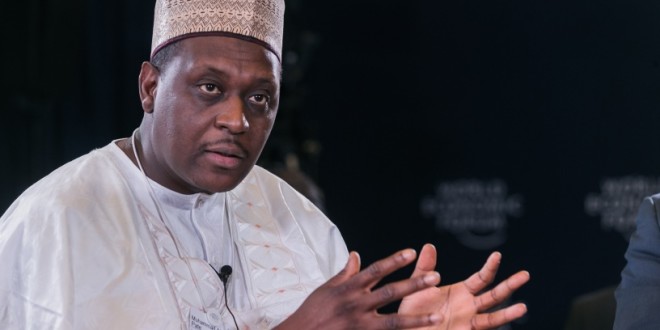By Asmau Ahmad
The Executive Chairman of Chigari Foundation, Professor Muhammad Ali-Pate has identified health security as a critical element towards ensuring socio-economic and political stability of any nation.
He stated this when he led a team of foundations and NGOs on a courtesy visit on Governor Abubakar Atiku Bagudu of Kebbi State at Government House in Birnin Kebbi, the state capital.
The delegation includes representives from World Health Organisation (WHO), Solina and Sultan Foundations.
Ali-Pate, who is the team leader and a former Minister of state for Health, said: “The purpose of our mission centred around health insecurity, there are infectious diseases that affect our children, young ones, women and adults everyday.
“Whether they are things like; measles that afflict our children and lead to loss of lives or pneumonia or tuberculosis or hepatitis or menengitis, all kinds of infections that can take the llves of a young child or young person.
“Those diseases are very preventable, there are tools of science that can prevent them, things like immunisation can prevent those infectious diseases.
“The absence of systems to deliver those vaccines and immunisation services itself is a contributor to health insecurity because if you have infectious disease from one person to another you are actually undermining the ability of people to have a chance of surviving to adulthood to be healthy and productive contributors to societal growth and development.
“Health insecurity can also affect economic security, we saw a pandemic crippling the world, it started as a health problem but suddenly even those who didn’t have the disease were affected by the consequences of the pandemic.
“So, health security is very key part of development agenda of any reasonable society. In our country, for many years we have been trying to improve primary healthcare and immunisation.”
He lauded the Sultan of Sokoto, who according to him, about 12 years ago mobilsed and convened all traditional leaders in Northern Nigeria and they engaged in a programme in collaboration with the state government which led to a dramatic progress and improvement in immunisation.
“We thank God Almighty and also thanks to all your contributions as we succeeded in stopping wild polio virus.
That means future generations are secured, they will exist in a world where that virus is not going to threaten them, that is a big accomplishment.
“But that engagement between the state and traditional institutions is key to that success, here in Kebbi State, His Royal Highness, the Emir of Argungu has been a key leader of the Northern Traditional Leaders Committee on Primary Healthcare representing the Kebbi State Traditional Council of Chiefs and Emirs.
“And all across Northern Nigeria, that group with leaders across the chain, worked hard to contribute in achieving that success,” he said.
While appreciating the efforts of the state government in various health intervention programmes in previous years, the former minister advocated for more concerted efforts to record more success in the immunisation exercise.




